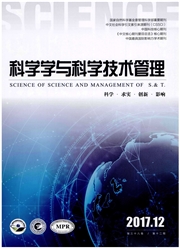

 中文摘要:
中文摘要:
链合创新是一种基于产业链的纵向合作创新,是企业降低研发风险和减少研发成本的重要形式。针对存在一个上游供应商和一个下游制造商的两层产业结构,分析比较了当下游企业进行技术创新时,上下游企业非合作创新和合作创新博弈形式下各企业的选择策略及利润函数。研究结果表明:合作创新是一种双赢的策略,制造商与供应商都能获得比非合作情况下更多的利润,同时产业链系统达到有效帕累托最优。最后,用Rubinstein讨价还价模型来确定剩余利润的分配和创新费用的分担问题。
 英文摘要:
英文摘要:
Vertical cooperative innovation based on industry chain is an important form through which the enterprises can reduce the risk and cost of research and development activities. Considering a two-tier market structure that consists of one upstream supplier and one downstream manufacturer, this paper analyzes upstream and downstream enterp the d rises" strategies and profit levels of non-cooperative innovation game and cooperative innovation game when ownstream enterprise conducts technology innovation. The result indicates that cooperative innovation is a win-win strategy, the manufacturer and supplier can obtain more profits than non-cooperative game, at the same time the industry chain system achieves the effective Pareto optimality. Finally, we utilize the Rubinstein model to discuss how to distribute the remaining system profit and how to share the innovation costs bargaining
 同期刊论文项目
同期刊论文项目
 同项目期刊论文
同项目期刊论文
 期刊信息
期刊信息
